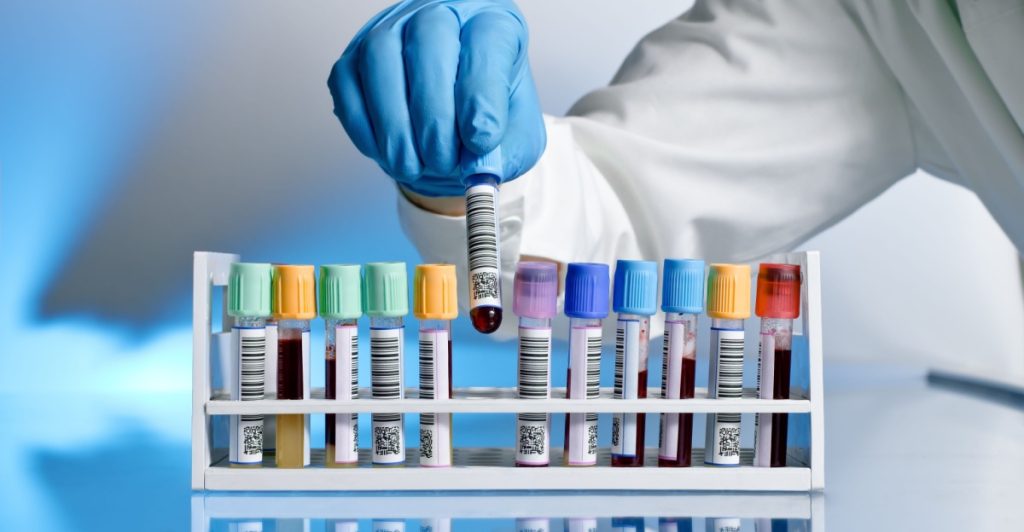Aging affects everyone, but the way it happens can differ widely from person to person. While lifestyle, diet, and genetics are well-known factors, some scientific studies suggest that blood type might also play a role in certain aspects of aging.
Blood type—A, B, AB, or O—is determined by specific proteins on the surface of red blood cells. These proteins not only define blood compatibility but may also influence certain biological processes, including inflammation, circulation, and immune function. Researchers are exploring how these factors might be linked to age-related changes in the body.

The Science Behind Aging
Aging starts at the cellular level. Over time, DNA can be damaged, cells repair themselves less efficiently, and the immune system gradually weakens. One of the key drivers of this process is chronic inflammation, which can contribute to conditions such as cardiovascular disease, certain cancers, and cognitive decline.
Some studies have suggested that individuals with blood type O may have slightly lower levels of certain inflammation markers—such as C-reactive protein (CRP) and interleukin-6 (IL-6)—compared to some other blood types. Lower inflammation levels could, in theory, help maintain healthier tissues and organs for longer.
However, while these findings are interesting, experts caution that blood type is only one factor and should not be seen as a primary predictor of aging speed.
Potential Observations by Blood Type
While more research is needed to confirm these patterns, here is what current scientific literature has explored regarding blood type and certain health tendencies:
-
Type O – May have a lower risk of some cardiovascular issues due to better circulation and a lower likelihood of certain clotting factors. Some studies suggest reduced risks of specific cancers, such as pancreatic and gastric cancers, though lifestyle and genetic factors remain significant influences.
-
Type A – Some evidence suggests higher levels of certain stress hormones, such as cortisol, in specific situations. This could be linked to inflammation, but the relationship is complex and not fully understood.
-
Type B – May have a balanced metabolic profile in some studies, though certain inflammatory conditions have been observed more frequently in small research samples.
-
Type AB – Combines traits of A and B. Because it is less common in the population, fewer large-scale studies are available, making trends harder to confirm.
It’s important to note that these are population-level observations and not definitive rules. Individual health varies greatly.

Healthy Aging Strategies for All Blood Types
Regardless of blood type, most experts agree that the following habits can help slow age-related decline and improve quality of life:
1. Prioritize Anti-Inflammatory Foods
Include leafy greens, berries, fatty fish such as salmon, nuts, olive oil, turmeric, and green tea. These foods are rich in antioxidants and compounds that help reduce oxidative stress.
2. Stay Physically Active
Aim for at least 150 minutes of moderate activity per week. Walking, swimming, yoga, and light strength training all support cardiovascular health, mobility, and cognitive function.
3. Get Quality Sleep
Sleep is essential for cell repair, hormone balance, and mental health. Adults should aim for 7–9 hours of restful sleep each night.
4. Manage Stress
Chronic stress accelerates aging through hormonal and inflammatory pathways. Practices such as meditation, deep breathing, or spending time in nature can help maintain emotional balance.
5. Schedule Regular Check-Ups
Routine medical exams can detect early signs of age-related conditions. Preventive care is one of the most effective ways to maintain long-term health.

Why Blood Type Research Matters
Understanding how blood type interacts with biological processes could help doctors personalize prevention strategies in the future. For example, if certain blood types are shown to be more prone to inflammation, individuals in those groups might benefit from earlier lifestyle interventions.
Still, the scientific community emphasizes that blood type is a clue, not a destiny. A person with type O could age quickly if they lead an unhealthy lifestyle, while someone with type A, B, or AB can remain vibrant well into older age with the right habits.
